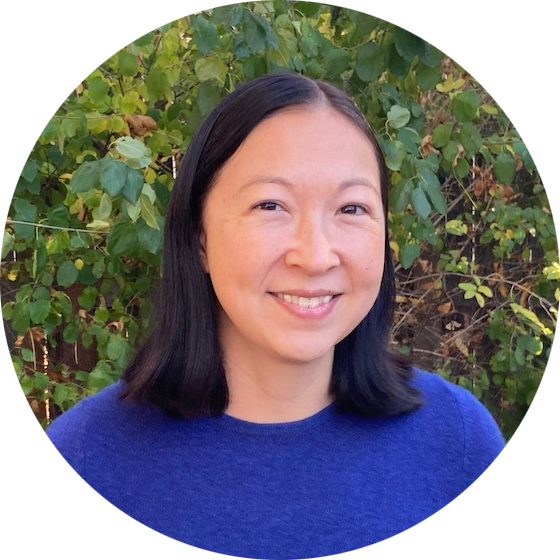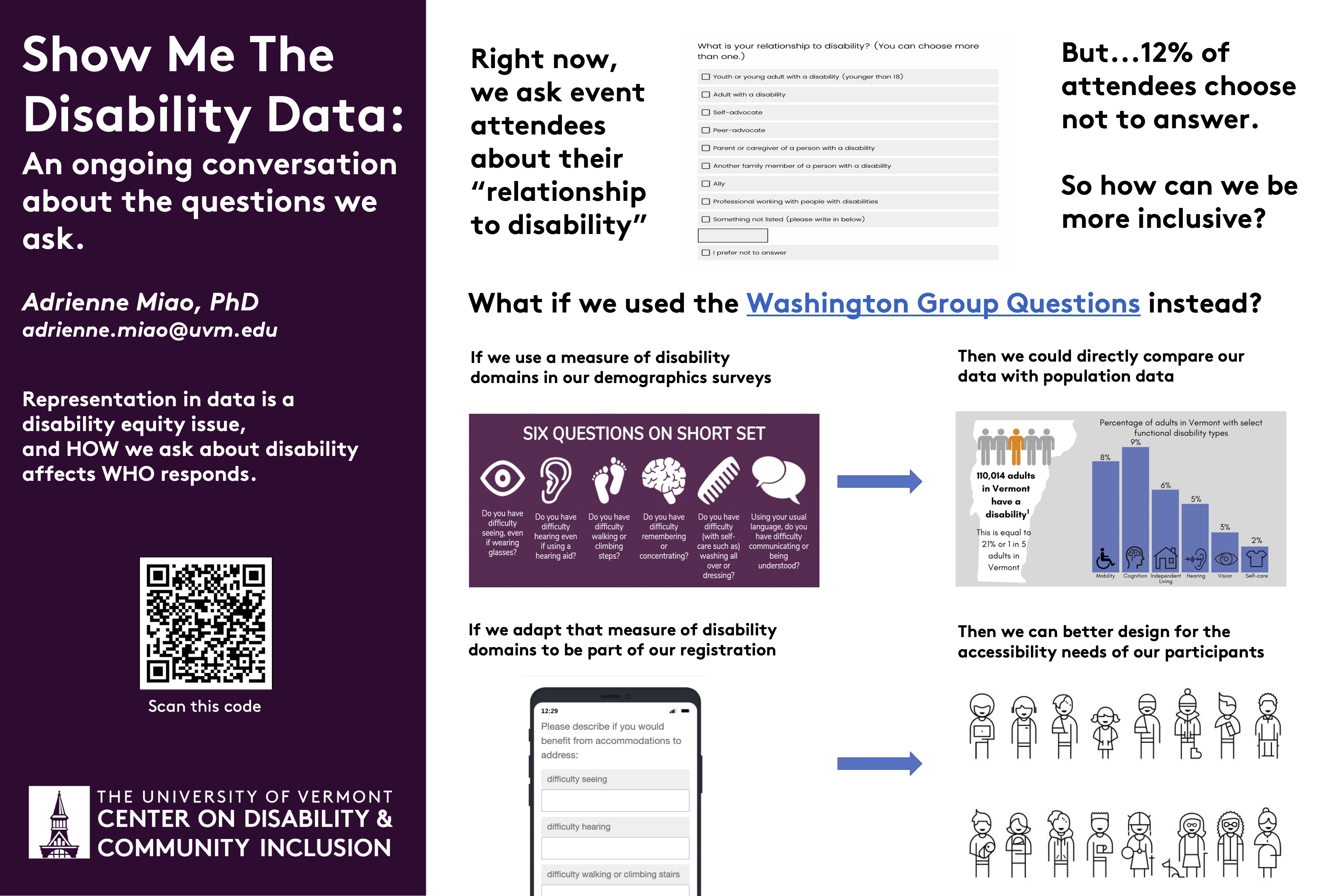Why is this research important?
Representation in data is a health equity issue.
This poster session describes what we're trying to do at our organization to improve how much people with disabilities are represented in our data, and how well they can access our services. We want to start conversations with other people and organizations about how they look for disability data. A key part of equity is improving our understanding of the disability community, and improving how well we connect with that community.
Both the UN Convention on the Rights of Persons with Disability (2006) and the 2030 Agenda for Sustainable Development call for collecting and sharing disability facts in all data sets.
How we ask about disability experience matters.
We chose to look at The Washington Group Questions because those questions were developed specifically to help find out more about disability in data sets. These questions might be really useful for designing more accessible trainings, events, and resources.





